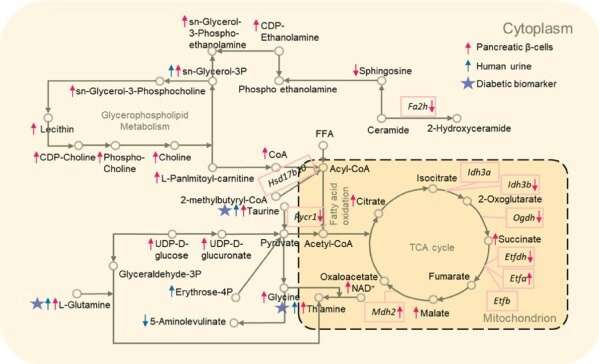Unraveling correlation of Cd induced metabolic toxicity and diabetes

Diabetes has become the leading metabolic disease threatening human health. Meanwhile, the association between exposure to harmful environmental factors and the occurrence of diabetes has always been a hot spot of public health and environmental medicine.
A recent study conducted by Dr. Zhou Zhou's lab at the Department of Environmental Medicine, the Zhejiang University School of Medicine elucidated the Cd perturbed metabolomic signature inpancreatic beta cellsand human urine. The original article was published on line inEnvironment Internationalon February 14, 2022.
Cadmium (Cd), as an extremely toxic heavy metal, exists widely in the environment. Cd pollution from industrial and agricultural activities is a worldwide environmental health threat to the public. Thegeneral populationis exposed to Cd through foods such as rice, wheat, and potatoes from polluted agricultural soil. Tobacco smoking and seafood intaking further increase Cd exposure. Epidemiological studies indicated that urinary Cd content is markedly associated with impaired fasting glucose. However, there is still paucity of information on metabolic toxicity of Cd exposure in pancreatic β-cells. The underlying metabolic events of Cd exposure at metabolome-wide level in pancreatic β-cells and in humans remain largely unknown.
In this study, the researchers firstly delineated the metabolomic signatures of Cd exposure in insulin-secreting MIN6 cells and in urine of exposed workers by using non-target metabolomics. Then, they verified that these metabolic changes are linked to Cd toxicity and the perturbed metabolites and pathways correlates with pathogenesis of diabetes.
"Findings of this study greatly extend our understanding of metabolic toxicity of Cd exposure in pancreatic β-cells at metabolome-wide level and offer some new clues for linking Cd exposure to development of diabetes mellitus," as pointed out by Dr. Frederic Coulon, editor-in-chief ofEnvironment International. Also, the results of this study support the notion that Cd induced metabolic toxicity could be monitored by examining perturbed urinary metabolites in humans and highlight the significance of reducing Cd exposure via drinking water at population level.
更多的信息:Huihui Hong et al, Cadmium perturbed metabolomic signature in pancreatic beta cells correlates with disturbed metabolite profile in human urine,Environment International(2022).DOI: 10.1016/j.envint.2022.107139


















